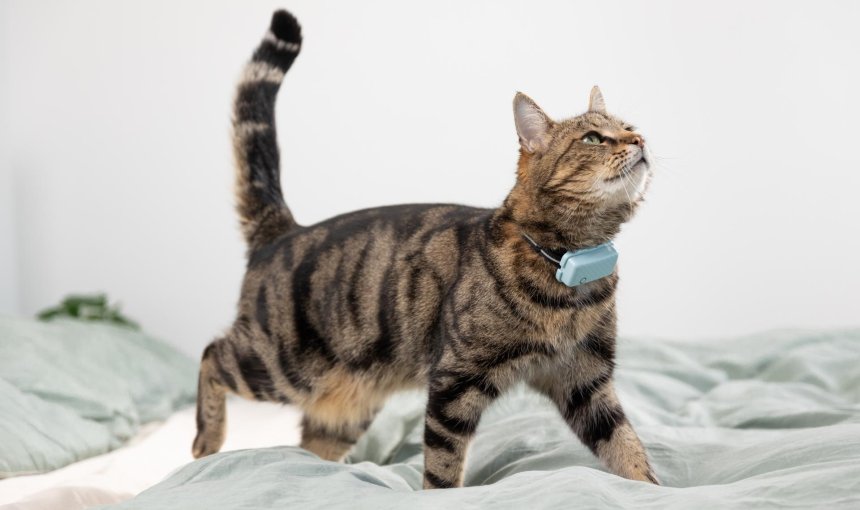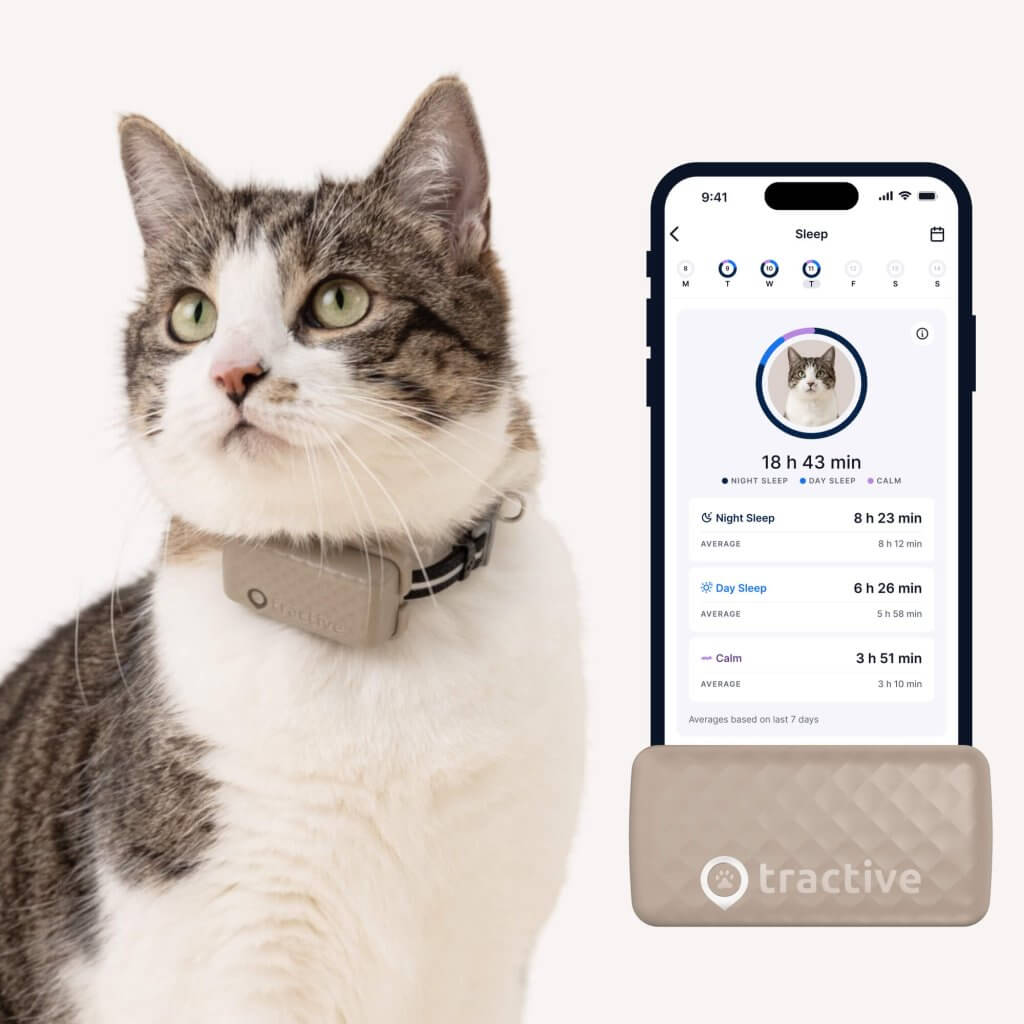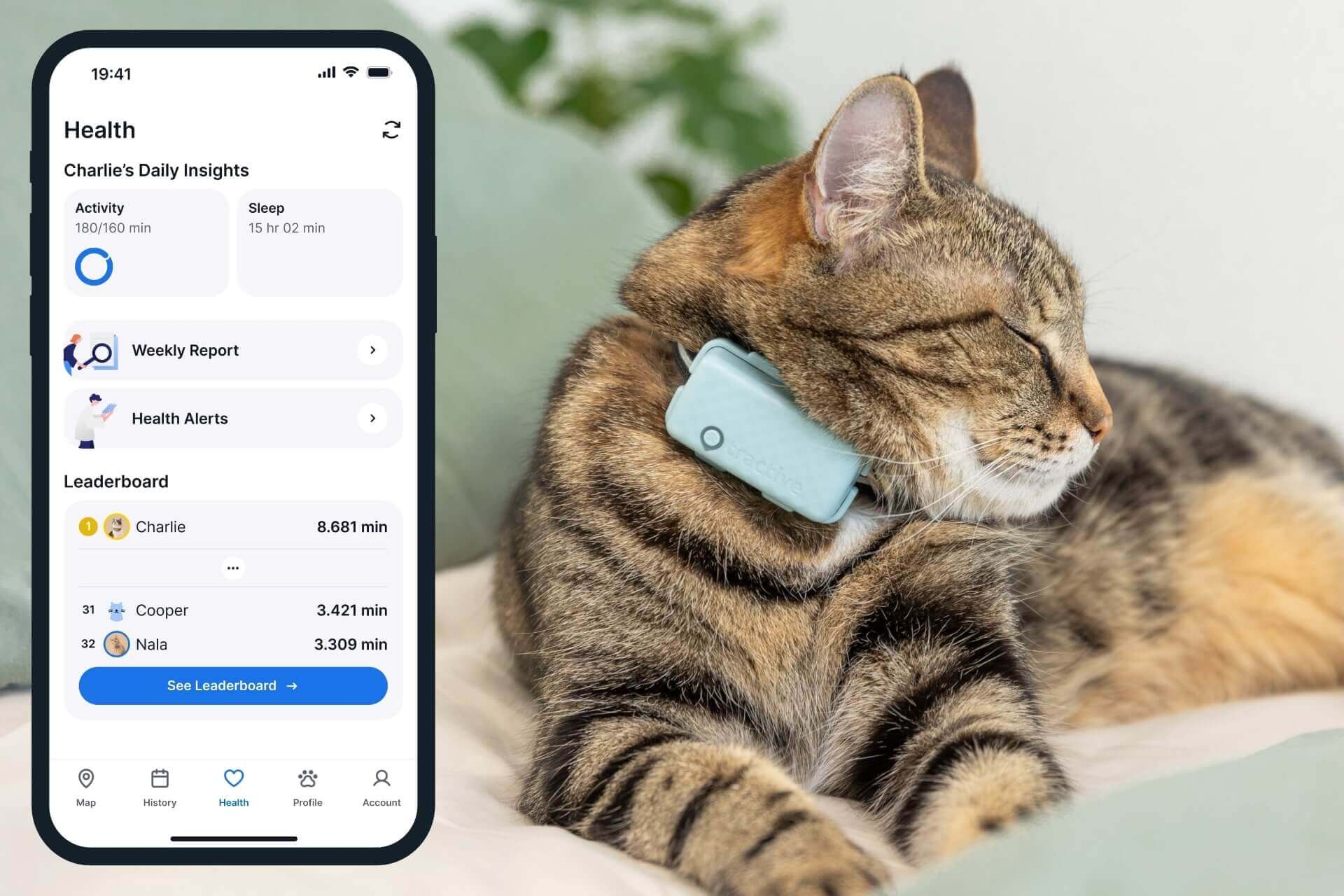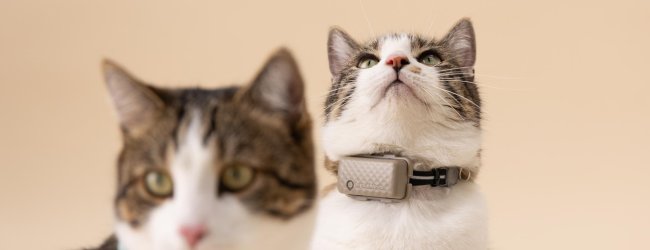Why Do Cats Sleep With You? Dealing With A Cat In Your Bed
Cats can show their affection in some pretty weird ways. Which might also include sneaking into bed with you. But why do they do it in the first place? The reasons are actually pretty endearing.

Cats might be a bit undemonstrative when it comes to affection. And then you find them curled up on your bed or pillow. So if you’ve ever wondered “Why does my cat sleep next to me?”, there are a couple of endearing reasons why. Here they are, plus how a cat in bed with you means you’re better able to monitor their health and wellbeing.
Key Takeaways
Cats often sleep next to their humans because they find comfort in your body heat and feel safe in your presence. (Yes, it’s also a sign they like you.)
Before you let your cat in bed, consider their overall health, instinctive behaviors (like scratching), and how well you two sleep together.
Sharing a bed with your cat allows you to observe their sleep behaviors. Noticing restlessness or changes in sleep patterns can be early indicators of health issues.
The Tractive smart cat collar includes Health Monitoring features like sleep tracking and Health Alerts. These tools help you monitor your cat’s sleep quality and detect any unusual patterns. So you can act early and get them over to a vet on time.

Find out where your cat spends their time.
Read moreWhy does my cat sleep next to me?
When your cat sleeps next to you, it’s simply because it’s their way of showing affection. (It might also have to do with the fact that you’re their primary caregiver. Aka, the one who’s in charge of regular food deliveries. So they’re trying to stay on your “good” side.) Besides, it might also be that:
You’re warm & cozy
One of the main reasons your cat is sleeping next to you is your body heat. Kittens tend to sleep all bundled up together, for example. So by sharing your personal space, it’s your cat’s way of showing you that they consider you a part of their social group. (And that, yes, you are their favorite.)
Your cat feels they can relax around you
In many ways, your cat is still hardwired to be cautious and wary of their surroundings and everyone in it. So if you’re dealing with a cat in bed with you, it’s how they’re signaling to you that you’re someone they trust. And can let their guard down around. (Which means you’re doing a great job as a cat parent.)
So in this way, your bed can be a sanctuary where your cat feels safe and secure. Sleeping next to you helps them relax without worrying about potential dangers. Which can also help them sleep better in the long run – and be less likely to develop any health problems down the line.
You help your cat deal better with a bad day
Your cat might sleep next to you because it can help reduce their stress. Cats are creatures of routine – so changes to their environment can throw them off balance pretty easily. But sleeping next to you might help them feel more relaxed and less stressed instead. (Especially if it’s something they’ve been doing for a while.)
In a nutshell: when your cat sleeps next to you, it’s because they’ve decided to trust you. They may also be seeking emotional comfort if they’ve had a stressful day. So your presence provides them a sense of security and reassurance – and helps them better cope with any changes in their environment.
The perks of having a cat in bed with you
Having your cat in bed with you comes with a ton of physical and mental health benefits. Like, for example:
- Stress reduction
Cuddling and spending time with your cat helps them relax and trust you. It can also reduce your stress from the feel-good hormones. With time, this can reduce your risk of developing worse health problems. - Feeling less lonely
Some studies have found that cat parents may have better psychological health than non-pet parents.1 The presence of your cat can help you feel less lonely – especially if they’re fast asleep next to you. Even their purring can have a relaxing effect. - Being able to monitor your cat’s health
With your cat in bed with you, you can keep out an eye for how well they’re sleeping. If you’re noticing your cat tossing and turning or generally restless, it could be a sign that something is wrong. A cat GPS tracker with Health Monitoring can keep track of your cat’s sleep quality for you, so you can catch on to any change in your cat’s sleep patterns early. (And get them to a vet quicker and earlier.)

Help your cat stay fit and healthy
Get a complete overview of how much exercise and rest they’re getting. Compare their activity to that of similar cats. Set daily goals.
What to consider before letting your cat sleep next to you
A 2015 study by Mayo Clinic found that around 56% of pet parents allowed their pets to sleep in their bedrooms.4 More of them considered their pets unobtrusive – and unlikely to disturb them while asleep. But is this always the case? Here are a couple of factors to consider before letting your cat in bed with you.
- Health concerns
Is your cat on top of their flea and tick preventatives? Some of these critters might infect you or your other pets, especially if you let them on your bed. - Your cat’s instinctive behaviors
Cats might bite, scratch, claw, or bat at things out of instinct. Which is why vets recommend not allowing them in bed if you have children at home. (And certainly not in your child’s bedroom.) There’s always the likelihood your cat might scratch or claw an infant, child, or even you if you stir or move around while asleep. Or even suffocate a baby by sitting on them by mistake! - How territorial your cat is
Cats are also territorial by instinct. So if at some point, you introduce a new bedmate (like a partner or another pet), they might hiss or scratch and make bedtime that much more chaotic. - How well you sleep together
A cat in bed might mean you find yourself waking up more than usual. Or your cat might decide to wake up midway and scratch your door to be let out – disrupting your sleep. Your bedtime schedule might not fit your cat’s 100%.
Overall, unless you and your cat can reach a sleeptime compromise, it might be wiser to let them in bed with you only occasionally.
Where monitoring your cat’s sleep can help
Whether it’s in bed with you or curled up nearby, having your cat close by can come with a surprising perk: monitoring their health. Specifically, how well they’re sleeping. A change in your cat’s sleep cycles could be an early, sneaky sign that they might not be 100%, health-wise. That’s where a smart cat collar – like Tractive – can step in. Strapped to your cat’s collar, your tracker’s Health Monitoring features help you:
- Monitor your cat’s sleep quality.
Your tracker logs every twitch, wakeup, or shuffle and helps you understand what’s normal for your cat – and what isn’t. Cats tend to be super sleepers, after all. But with this knowledge, you’ll be better-prepared if there’s a weird change in their sleep minutes. - Catch on to potential health issues early.
If your tracker spots a weird spike or dip in your cat’s sleep minutes or sleep quality, you’ll get a Health Alert. A change in cats’ sleep cycles could be a sign of cognitive decline – especially in senior cats. - Have a more productive conversation with your vet.
With your cat’s sleep data at hand, you can share more accurate info with your vet, get your cat over for a checkup earlier, and get ahead of any issues sooner rather than later.

So, while your cat snoozes peacefully next to you, your trusty Tractive device quietly keeps tabs on their wellbeing, helping you stay in tune with your kitty’s health. No guesswork needed.
Ready to create a safe space for your cat in bed?
In a nutshell: it’s usually a sign they see you as someone they can trust and let down their guard around. But like with every aspect of their behavior, it’s wise to consider whether your sleeping arrangements will work out in the long term. Especially if you have kids or other pets at home.
So the next time your cat curls up beside you in bed, pat yourself on the back. You’re doing a great job as a cat parent. (Even if your cat would never admit it.)



